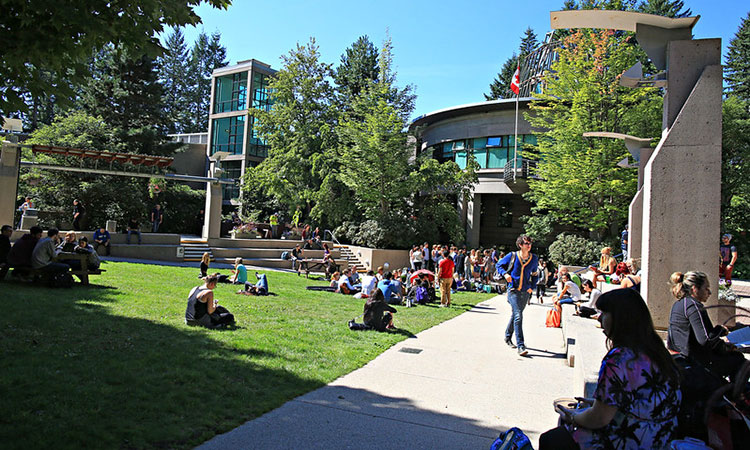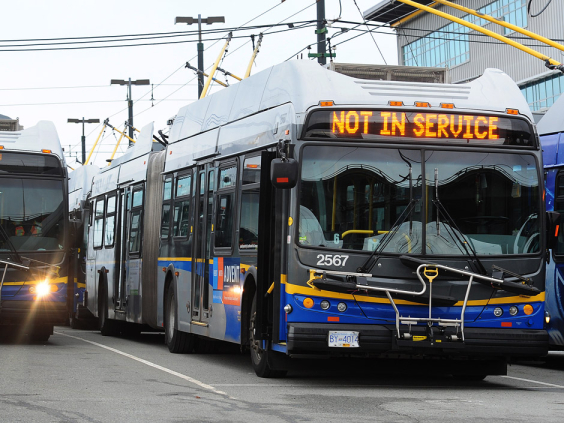SUPPORTING BC’S STEELMAKING COAL INDUSTRY
Issue:
British Columbia’s steelmaking coal industry makes a significant contribution to the provincial economy through employment, tax revenue and contribution to provincial GDP. BC steelmaking coal mining and export contributed $6.3 billion in GDP to the province in 2022 and accounted for almost 12,800 in the province and 30,500 jobs across Canada.
There is a long history of environmental responsibility in the mining and transportation of steelmaking coal internationally. BC’s port industry operates under strict environmental regulations that are among the highest in the world, ensuring no health risks for those who live near or work at steelmaking coal terminals.
In 2022 alone, the industry spent 1.4 billion on goods and services from over 900 suppliers in municipalities throughout the province.
Industry opponents have consistently made misleading and false claims about coal transportation in BC and have lobbied municipal governments to take action. This has resulted in some municipalities considering or taking policy positions against coal transportation in their communities and opposing the continued mining and export of steelmaking coal from our province. In fact, the industry contributes to BC’s export growth strategies and ensures critical upgrades are made to terminal facilities to improve and mitigate environmental and residential impacts. It is essential that BC’s steelmaking coal industry have access to international markets.
Restricting the province’s steelmaking coal supply chain will result in the loss of livelihood for a significant number of families in many parts of BC that are reliant on and supported by the coal industry and will reduce BC’s global competitiveness, at a time when economic recovery from inflation is a priority and BC and Canada are at risk of threatened US tariffs.
It is important that BC protect the economic benefits of this sector by informing the public and municipalities about BC’s steelmaking coal industry and corresponding global demand for steel, and ensure its transportation is not inhibited at critical points in the supply chain.
Background:
Over 95 percent of the coal produced in British Columbia is steelmaking coal. In 2022, that amounted to approximately 27 million tonnes of steelmaking coal.
This coal is sourced from four mines in the southeast Kootenay region and two mines in the Peace River coalfield of northeastern BC.
BC has 12.9 billion tonnes of mineable coal reserves, of which 8 billion tonnes are in the southeast region and 4.9 billion tonnes are northeast. Restricting the availability of Canadian coal will have limited impact on the world market but will severely impact our domestic economy.
Coal continues to be BC’s most valuable mined commodity with most of the coal exported to Japan, South Korea and China for steel production. Of the bulk commodities exported through the Port of Vancouver in 2022, coal accounted for 40 percent, with steelmaking coal accounting for almost a quarter of all exports.
The two steelmaking coal mines in British Columbia’s NE Peace River region:
- Contributed over $100 million in government revenues (federal, provincial, municipal)
- Produced 3.64 million tonnes of steelmaking coal mined for export in 2022.
The four steelmaking coal mines in British Columbia’s SE Kootenay region:
- Contributed $1.5 billion in government revenues (federal, provincial, municipal)
- Produced 5 million tonnes of steelmaking coal mined for export in 2022.
These mines generated direct work for a wide array of professional service providers including engineers, technical contractors, iron workers, pipefitters, environmental experts and employees in legal, real estate, insurance and financial roles.
BC’s steelmaking coal is vital to everyday life around the world. It is used to build major projects like bridges, rapid transit systems, wind turbines, high rises and everyday consumer products like cars, bicycles, tools, lawn equipment and household appliances. It is also one of the most recycled products.
Steelmaking, like many industrial processes, does create some emissions. Steelmaking coal, also known as metallurgical coal, is an essential part of a chemical reaction needed to create new steel. It is not used to generate power.
Steelmaking coal is inert. It can be handled with bare hands. It is not considered a dangerous or hazardous material by Transport Canada, and it is safely handled by thousands of workers every day. BC’s port industry operates under strict environmental regulations that are among the highest in the world, ensuring no health risks for those who live near or work on port terminals.
Rail is the most efficient mode of transport to move commodities and has been shown to be two to five times more fuel-efficient than truck transportation depending on the commodity.
As the population continues to grow, residential neighbourhoods have expanded and, in some areas, are closer to port terminals. In some communities where rail lines connect with port terminals, public debates have been held in the media and with their municipal representatives, calling for the elimination of coal transportation through communities where rail lines have been located for decades, in most cases long before the residential neighbourhoods were built around them.
Conclusion:
Steel is vital for the world’s advancement. Coal exporting is a major economic contributor for Canada, and British Columbia’s ports play a critical role in transporting Canadian steelmaking coal to important international markets.
The provincial government has an important role to play in supporting expansion and infrastructure improvements in this important industry and protecting exports from being inhibited at critical distribution points.
THE CHAMBER RECOMMENDS
That the Provincial Government:
- promote the productive and environmental benefits of high-quality Canadian steelmaking coal to international markets;
- work with industry to develop sound public and economic policies that fosters BC’s steelmaking coal mining industry;
- support educational opportunities to inform people of the province’s steelmaking coal resources, its contribution to meeting global demand for steel production and the corresponding economic prosperity through high paying jobs for tens of thousands of families, to BC’s small businesses through local procurement, through tax generation and the related economic spinoff.
Submitted by the North Vancouver Chamber
Supported by: Chetwynd Chamber of Commerce, Cranbrook Chamber of Commerce, Elkford Chamber of Commerce, Fernie Chamber of Commerce, Prince George Chamber of Commerce, Prince Rupert and District Chamber of Commerce, Sparwood Chamber of Commerce, Tumbler Ridge Chamber of Commerce.
__________
Sources:
coalalliance.ca; https://bcchamber.org/wp-content/uploads/2022/02/Teck-Resources-Economic-Contribution-Study-FINAL.pdf;



